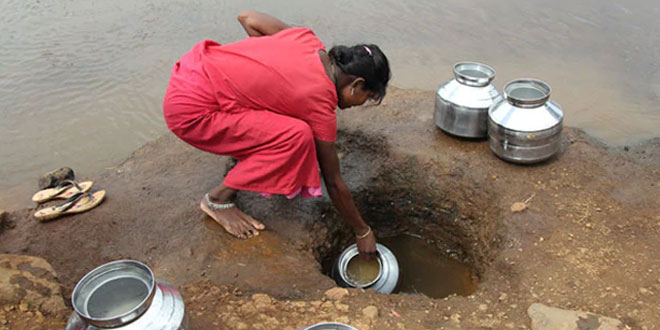New York: Some 2.2 billion people around the world do not have access to safely managed drinking water services, while 4.2 billion people lack access to safely managed sanitation services, according to a new report by the World Health Organisation (WHO) and the United Nations Children’s Fund (UNICEF). In addition, around three billion people worldwide lack basic handwashing facilities. The report — ‘Progress on drinking water, sanitation, and hygiene, 2000-2017: Special focus on inequalities’ — reveals that while 1.8 billion people have gained access to basic drinking water services since 2000, there remain vast inequalities in the accessibility, availability, and quality of these services.
“Mere access is not enough,” said UNICEF’s Kelly Ann Naylor, Associate Director of Water, Sanitation and Hygiene (WASH). “If the water isn’t clean, isn’t safe to drink or is far away, and if toilet access is unsafe or limited, then we’re not delivering for the world’s children.” She further said,
Children and their families in poor and rural communities are most at risk of being left behind.
Ms. Naylor has urged the governments around the world to “invest in their communities if we are going to bridge these economic and geographic divides and deliver this essential human right.”
The report further stated that the portion of the population practicing open defecation has more than halved since the turn of the century, from 21 per cent to nine per cent. Globally, around 673 million people continue this practice in ‘high burden’ countries.
Every year, around 2,97,000 children under the age of five die from diarrhea linked to inadequate water, sanitation, and hygiene services. Poor sanitation and contaminated water help transmit diseases, such as cholera, dysentery, Hepatitis A, and typhoid.
“Closing inequality gaps in the accessibility, quality, and availability of water, sanitation, and hygiene should be at the heart of government funding and planning strategies,” Naylor stressed.
“To relent on investment plans for universal coverage is to undermine decades worth of progress at the expense of coming generations,” she added.
NDTV – Dettol Banega Swachh India campaign lends support to the Government of India’s Swachh Bharat Mission (SBM). Helmed by Campaign Ambassador Amitabh Bachchan, the campaign aims to spread awareness about hygiene and sanitation, the importance of building toilets and making India open defecation free (ODF) by October 2019, a target set by Prime Minister Narendra Modi, when he launched Swachh Bharat Abhiyan in 2014. Over the years, the campaign has widened its scope to cover issues like air pollution, waste management, plastic ban, manual scavenging and menstrual hygiene. The campaign has also focused extensively on marine pollution, clean Ganga Project and rejuvenation of Yamuna, two of India’s major river bodies.




























